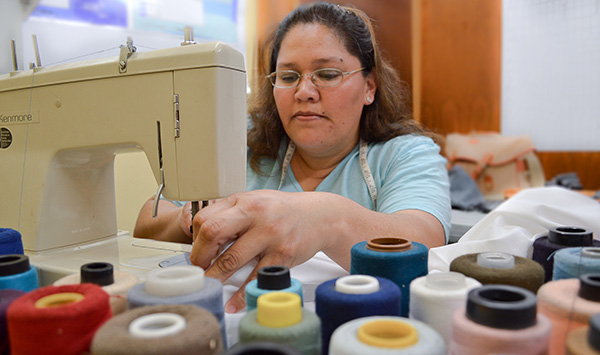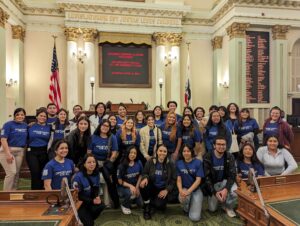Make the new minimum wage a reality. Enforce it.

Last year, landmark policies passed to help workers receive a fair day’s pay for a fair day’s work. When the Los Angeles City Council voted to raise the city’s minimum wage to $15/hour, it also voted to establish a new Office of Wage Standards to enforce wage and hour violations. Many cities in California that are raising their wages will also establish new offices to do the same. On the state level, California passed SB 588, which enacted new tools for the California Labor Commissioner to be able to collect on behalf of workers.
Now, the rubber hits the road. Budget decisions happening now will determine how wage theft enforcement will happen and if it will be efficient and effective.
How Real is the New Minimum Wage for California Workers?
In general, we know that one in three low-wage workers in Los Angeles do not make the current minimum wage due to wage theft– violations of basic labor laws like minimum wage and overtime.
Every week, unscrupulous employers steal $26.2 million from employees’ paychecks. To compound matters, it is nearly impossible to collect what they are owed. 83% of people who win their wage theft cases with the California Labor Commissioner never see a dime. Learn more about wage theft.
Implementation will now determine how effective the new wage theft laws will be. On January 1, 2016, California raised its minimum wage to $10 per hour. Yet, in conversations with workers in our networks, we know that a startling number of workers are currently not making the new minimum.
Will There Be Funding to Enforce the Law?
On July 1, Los Angeles’s minimum wage will raise to $10.50/hour. The doors to the City’s new Office of Wage Standards will also open, providing a one-stop shop for workers to go to address labor law violations.
The City of LA is currently deep in conversation about how to set up the office, and how much money it should receive. The Bureau of Contract Administration (BCA) has requested 22 staffers, $200,000 for outreach materials and $1 million for community partnerships. Given Los Angeles’s size and diversity, this estimate is fair, and quite conservative.
Community partnerships are a key part of the equation. It takes courage and a great deal of trust for many to come forward with their wage claims. Community groups on the ground are the frontline of this issue, and are often the first to identify wage theft cases, outreach and educate, and prepare evidence.
City Council is currently in discussion about these issues, and the mayor will release his draft budget on April 20. This stage is critical to ensure the Office of Wage Standards can start to make a dent in the massive problem of wage theft in Los Angeles.
What about SB588?
SB588 also went into effect on January 1, 2016. Parallel to Los Angeles and other localities, California is in budget talks on the statewide level to determine the level of funding that the California Labor Commissioner will receive to implement the new law. The governor proposed a draft budget early in January, and the revisions will happen by May. Legislature will vote on a final budget by June 15.
The new minimum wage will not be a reality for California workers unless there is strong enforcement. Conversations happening now are critical for workers across the state.


